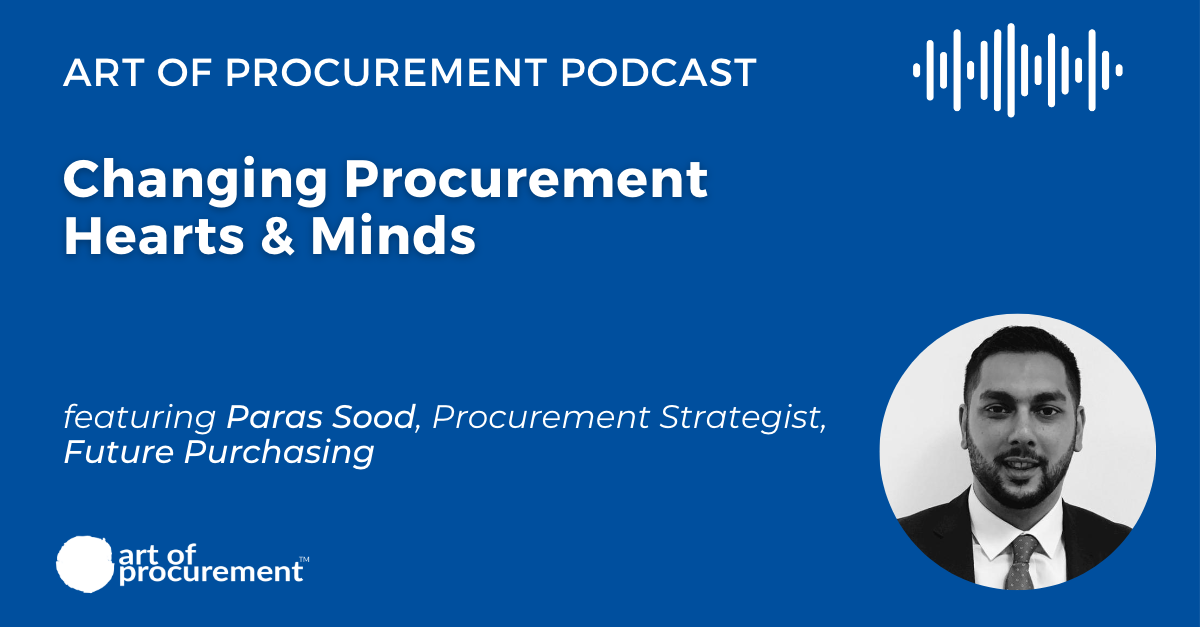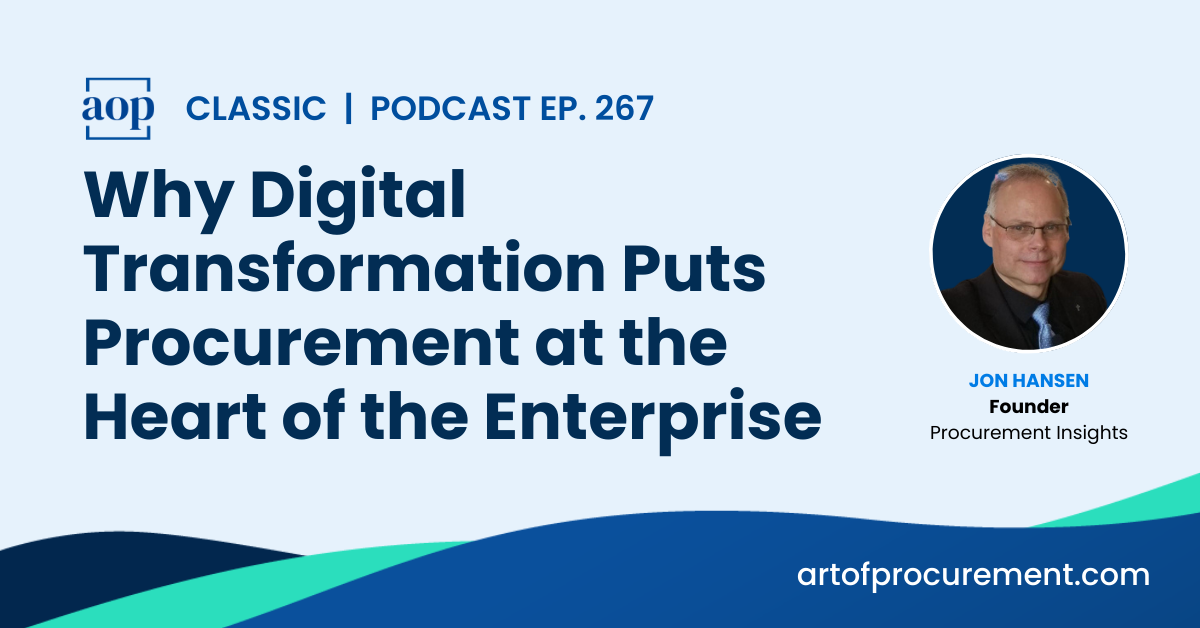1 min read
Be Prepared: Why Digitization Will Transform What, and How, We Buy
Philip Ideson : Updated on December 12, 2024
-1.png)
Today’s Art of Procurement interview is a real treat. It is chock full of actionable insights on how we can position our careers, and our organizations, to fully take advantage of digitization and its impact on what, and how, we buy.
My guest is Bill Huber. Bill is an active participant in the procurement community and I have followed his career for some time. Bill has worked as a practitioner – most recently as Chief Procurement Officer of Wachovia – as a service provider as head of IBM’s procurement outsourcing offering – and as a consultant and advisor. Today, Bill is a Partner at Information Services Group (ISG), responsible for Digital Platforms and Solutions.
iTunes | Subscribe | Rate & Review
“We are not far away from the point at which algorithms can search the market for different products, compare pricing and supplier track records, and do all the optimization without a person ever having to create an RFP. So where does procurement add value? Go back to what people do better than machines – managing relationships, adding context and providing creativity.”
In this episode, you will learn:
- Has Bill’s experience as practitioner, service provider and advisor changed his perspective on the procurement value proposition?
- Why many procurement organizations have become the enemy of differentiation.
- What procurement can do to have maximum impact on an organization.
- Why changing metrics matters – especially to those companies that achieve real transformation… and where procurement can start.
- What does “digital” really mean?
- What will the impact of digitization be on what and how we buy?
- Will technology render much of procurement redundant, and where should we focus to change our value proposition?
- How can procurement align with the digital economy:?
- New ways of segmenting spend, so that you can focus on what is truly material.
- Options for accessing capability, so that retained teams can focus only on what makes their business a competitive advantage.
- Rethink contracts and contractual SLA’s to ensure they are fit for purpose and incent all parties to focus on the delivery of outcomes.




